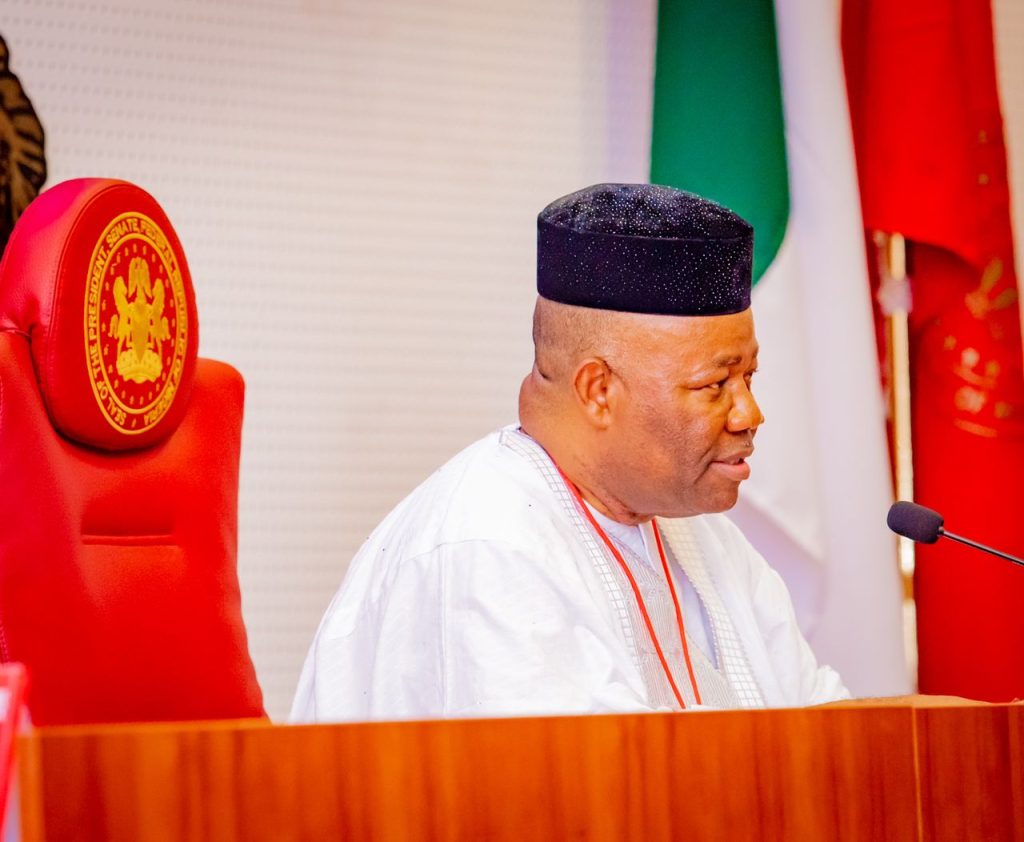Senate President Godswill Akpabio has declared the National Assembly’s commitment to supporting legislative updates essential for police reform and enhanced professionalism. This statement, delivered by Deputy Senate President Barau Jibrin at the Police Service Commission (PSC) Board Induction/Strategic Management session, underscored the need for a reward system to recognize and incentivize exemplary police officers. Akpabio emphasized the necessity of prioritizing merit, discipline, and integrity within the police force, advocating for a cultural shift away from mediocrity, favoritism, and impunity. He called for reforms that would transform the police from perceived predators into protectors, prioritizing justice over judgment, and mirroring successful community policing models seen in countries like Japan and Finland.
Central to Akpabio’s address was the call for a fundamental shift in the organizational culture of the Nigerian police. He urged the adoption of stringent recruitment standards, transparent promotion procedures, and robust accountability mechanisms, drawing parallels with successful police transformations in other nations, particularly Singapore. The Senate President stressed the importance of rewarding officers who uphold the highest ideals of public service, emphasizing that integrity, while perhaps not immediately lucrative, should ultimately yield greater rewards than corruption. This, he suggested, would foster a culture of commendation and recognition within the force.
To further enhance police effectiveness, Akpabio advocated for the development of Key Performance Indicators (KPIs), the integration of technology into daily operations, and training focused on service rather than just subjugation. He envisioned a data-driven approach to deployment, intelligence-guided actions, and a reward system based on tangible results. The National Assembly, he assured, is prepared to review outdated laws, endorse necessary reforms, and provide rigorous oversight to ensure the development of a professional and people-centric police system.
Acknowledging the multifaceted challenges facing the Nigerian Police Force, including funding shortages, obsolete training methods, low morale, corruption, and public distrust, Akpabio urged the PSC board to strive for a legacy of tangible improvement. He framed their appointment as a call to action, a mandate for reform, and a solemn responsibility to serve the public good. The overarching goal, he emphasized, is to transform the police from an instrument of coercion into an embodiment of trust, justice, and dedicated public service.
Akpabio’s message resonates with the growing demand for police reform in Nigeria. His emphasis on legislative support, performance-based rewards, and cultural transformation signals a potential shift towards a more accountable and effective police force. The call for community-oriented policing, mirroring models from countries like Japan and Finland, suggests a desire to move beyond traditional, often adversarial, policing strategies towards a more collaborative and service-oriented approach. This, coupled with the commitment to review outdated laws, could pave the way for substantial changes in police operations and public interaction.
The success of these proposed reforms, however, hinges on several factors. The National Assembly’s ability to enact meaningful legislative changes, the PSC’s commitment to implementing these reforms effectively, and the dedication of individual police officers to embrace a new ethos of service will all be critical. Overcoming ingrained challenges such as corruption and public distrust will require sustained effort and a genuine commitment to transparency and accountability at all levels of the police force. The call for a culture of commendation and the emphasis on rewarding integrity are promising steps towards fostering a more positive and motivated police force, essential for building trust and improving public safety.














